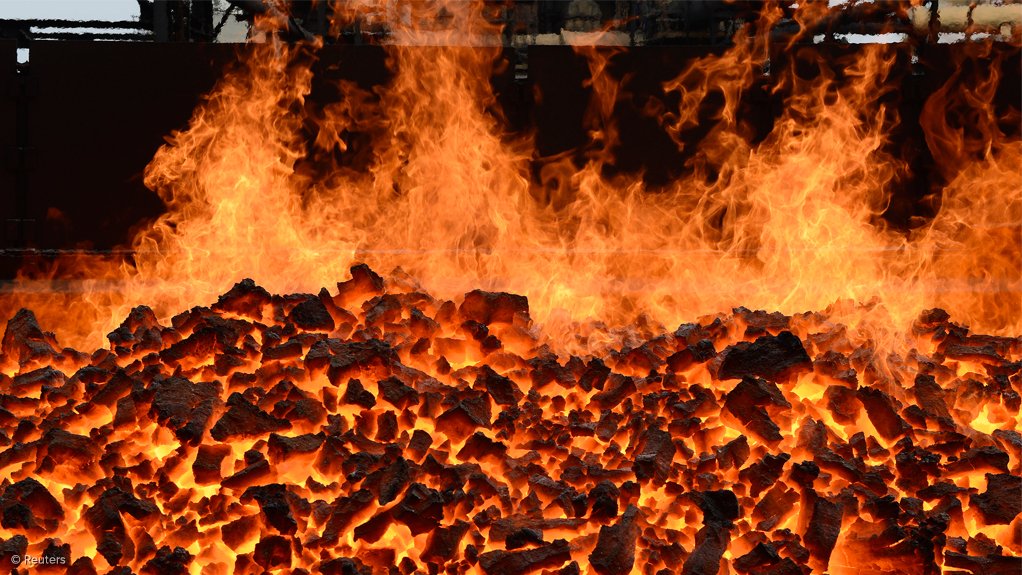TORONTO (miningweekly.com) – Peabody Energy, the world’s largest coal company, has advised markets that it might be forced to file for bankruptcy as falling global demand for the fossil fuel has affected its ability to service its substantial debt load.
In a Wednesday filing with the Securities Exchange Commission, NYSE-listed Peabody cited continued uncertainty around global coal fundamentals, the stagnated economic growth of certain significant coal-importing nations, and the potential for significant added regulatory requirements imposed on coal producers, among other factors, as concerns that contributed to the company's substantial doubt about whether it would be able to continue as a going concern.
Peabody could follow other large North American coal companies, such as Arch Coal, Alpha Natural Resources, Patriot Coal and Walter Energy, into bankruptcy.
The coal major had incurred a substantial loss from operations and had negative cash flows from operating activities for the full-year 2015. It said that its current operating plan indicated that it would continue to incur losses from operations and generate negative cash flows from operating activities for the foreseeable future which, combined with certain liquidity risks, raised substantial doubt about whether the company would meet its obligations as they became due within the next year.
As at December 31, Peabody's total debt was $6.3-billion, with $940-million of maximum borrowing capacity under the revolving loan portion of its 2013 credit facility, net of outstanding letters of credit.
Peabody advised that it had chosen to exercise the 30-day grace period regarding a $21.1-million semi-annual interest payment, due on Tuesday, on the 6.5% senior notes due September 2020, and a $50-million semi-annual interest payment, also due on Tuesday, on the 10% senior secured second lien notes, due March 2022.
The company now had 30 days in which to make these interest payments.
Peabody said it had engaged financial and other advisers to assist in exploring alternatives for other sources of capital for ongoing liquidity needs and transactions to enhance the company’s ability to comply with the financial covenants under its 2013 credit facility.
While the company was working to improve its operating performance and its cash, liquidity and financial position, it would consider selling noncore land and coal reserves, as well as existing mines, particularly the El Segundo and Lee Ranch coal mines, and related assets, located in New Mexico, and its Twentymile mine, in Colorado.
Following the filing, Peabody’s stock plunged by more than half on Wednesday to $2.19 apiece – a fall from grace against its five-year high of $1 090 a share in 2011.
Edited by: Samantha Herbst
Creamer Media Deputy Editor
EMAIL THIS ARTICLE SAVE THIS ARTICLE
To subscribe email subscriptions@creamermedia.co.za or click here
To advertise email advertising@creamermedia.co.za or click here













